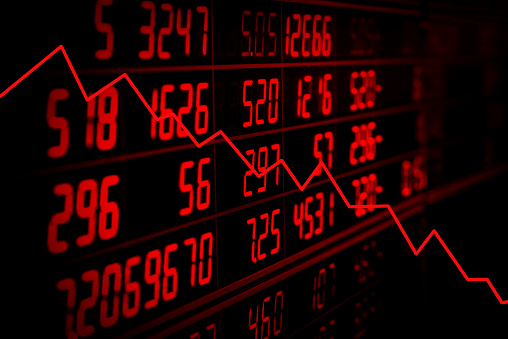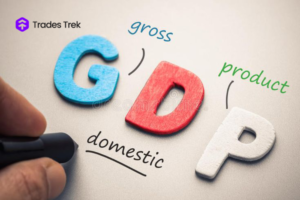Every investor enters the stock market with the primary goal of making money and accumulating wealth over time. Why do more than 80% of investors need help achieving this fundamental objective of making a profit?
Having experienced first-hand trends, we’ve noticed some mistakes most investors make in the stock market. Most investors concentrate more on the principles they will apply when investing in the stock market to build wealth and how they’ll maximize their chances of making sustainable gains.
Still, they overlook essential warning indicators to look out for to prevent financial loss. What’s the use of accumulating fortune if you lose it all eventually?
One of the most successful investors of all time, Warren Buffet, remarked “The two rules of investing: Rule number 1: Never lose money. Rule number 2: Never forget rule number 1”. This quotation highlights the significance of preventing stock market losses. It’s hardly surprising that he has amassed enormous wealth by adhering to this rule.
The stock market requires a lot of strategies, and since you want to gain money, you need to channel the same effort to look for warning signs, avoid traps, and invest wisely. Stay with us on this article as warning flags to look out for are revealed to prevent losing money in the stock market if your goal as an investor isn’t just to accumulate wealth. Let’s get down to business, shall we?
Herd Instinct
If you want to increase your wealth and avoid losing money in the stock market, one significant sign to avoid is relying on the analysis and research of other investors to guide your decisions. How can you let someone else determine your investment strategy? This herd instinct can create panic, leading to entering or exiting the market at the wrong time.
This herd instinct is one to avoid if you don’t want to lose money because following multiple investors to invest in a stock without your investment strategies can be likened to going to a grocery shop without a list of items to purchase but buying any item others are purchasing in high demand. You’ll end up purchasing irrelevant items you don’t need.
Making your own decisions after thoroughly researching and analyzing the market will help you avoid losing money in the stock market due to feeling compelled to follow the actions and directions of others out of fear of missing out on a lucrative investment. This approach will also ensure that you reap the rewards over the long term.
Making Investment Decisions Using Your Emotions as a Guide
Investors occasionally become so fixated on a stock that they disregard all warning signs and stick with it. On the other hand, some investors leave the market at the first sign of volatility, forgetting that several factors occasionally affect how a company’s stock performs.
Your financial decisions will suffer if you react emotionally to stock market volatility. Prevent letting your emotions influence your investment choices to avoid missing market opportunities. Accept the feelings without responding. Consider the event’s impact (what it is and how long it will last) and how it will affect you before deciding whether you need to make any changes to your investing strategy.
Purchasing Stocks When There is a Large Demand
One way to avoid losing money in the stock market is to buy a stock when both demand and price are high. Due to the need for that stock, most investors buy it when the price is absurdly high.
You are selecting the suitable order type that will enable you to purchase or sell your stock at the appropriate time and avoid doing so while demand is at its peak. The order types allow you to buy stocks at reduced costs and increase margins after a market recovery. If you choose to invest to profit from the downturn, stick to high-quality stocks and the industries you are familiar with.
Refusing to Admit Certain Investment Mistakes
Many investors resist admitting to themselves that they’ve made a mistake by refusing to sell a stock at a loss, which is a sign you must avoid if your goal is to gain money rather than lose it. They choose to stick to the losing position under the erroneous belief that they will lose a lot once the stock is sold. They avoid remorse by doing this. Many investors want to keep a stock they have purchased at a loss until it reaches its original price. As soon as they make up this fictitious loss, they plan to sell the shares. They will thereby “eliminate” their error and achieve a profit. Unfortunately, many of these same equities will keep falling, resulting in a substantial loss.
Lack of Adequate Stock Market Knowledge
Consider the results if a man believed he could learn how to swim by plunging into the water without a life jacket or assistance from a trained swimmer. The result will be terrible. This scenario is comparable to an investor who invests money in the market without a financial consultant’s aid and needs more stock market expertise. Before investing, gain an understanding of some basic terminologies. Only enter the market after you fully comprehend some of the terminologies; doing so will only result in losing your hard-earned money.
The market and the economy are intertwined and will impact each other. Knowing economic cycles will enable you to predict when stock values will decline (or rise). You might use Short-term market slips to plan your entry. Similar to when the market is growing, if you have already invested, it is crucial to recognize when the drawdown phase is brief and wait for the market to recover once more.
Choosing Investments Based on Performance in the Past
Most investors base their investment choices on a stock’s historical performance. However, it is not the most excellent strategy because business fundamentals might change. Therefore, buying firm stocks based solely on historical data is dangerous. The investor must incorporate the investor’s analysis into the investor’s investment strategies.
When investing, one must assess a Company’s fundamentals, P/E ratio, and stock price about its competitors. One crucial factor determining whether a stock is overvalued or undervalued is the P/E ratio (price-to-earning). The P/E ratio will give you a good understanding of the stock’s value and the Company’s profit potential.
Bottom Line
Consider these warning signs when investing to reduce your risk of losing money in the market. It’s not too late to significantly alter your attitude toward the stock market if you ignore any warning signs and suffer a loss.




